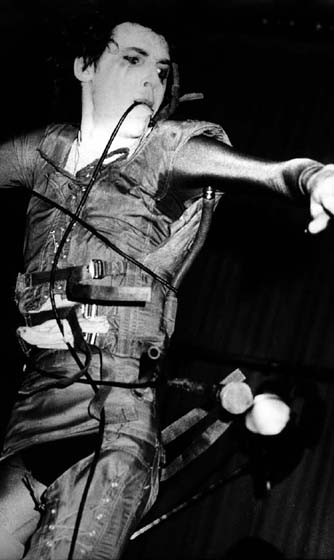The Encyclopedia of Dead Rock Stars (244 page)
Read The Encyclopedia of Dead Rock Stars Online
Authors: Jeremy Simmonds

(Madison, Wisconsin, 12 February 1946)
Three Dog Night

Between 1969 and 1974, they were America’s biggest-selling singles band. Originally produced by Beach Boy Brian Wilson, Three Dog Night eventually pulled away on their own to shift more than 50 million records in a career that took in three different lead singers, Danny Hutton, Cory Wells (Emil Lowendowski) and Chuck Negron. The band mainstays were Mike Alsup (guitar), Joe Schermie Jr (bass), Jimmy Greenspoon (keyboards) and Floyd Sneed (drums) – all in place as Three Dog Night racked up eighteen consecutive Top Forty hits, including number ones with ‘Mama Told Me Not to Come’ (1970), ‘Joy to the World’ (1971) and ‘Black and White’ (1972).
Exhausted by all the touring, Schermie left the band in 1973, going on to play with KATT but refusing to join a TDN reunion in 2000. It transpired he had been extremely unwell, news of which only reached his former colleagues on his death from a heart attack, on the same day as Castillo.
APRIL
Wednesday 3
Fad Gadget
(Frank Tovey - London, 8 September 1956)

‘Fad Gadget – is it a group? Is it a person?’ His was a name to conjure with while perusing the
NME’s
indie charts during 1981 and 1982. In reality, Gadget was plain old Frank Tovey, a musician, synth-player and performance artist revered by many within the industry, yet barely known by the world at large. Arriving at around the same time as fellow electronica enthusiasts Cabaret Voltaire, Clock DVA and the pre-pop Human League, Gadget gave a London slant to a genre for some reason dominated by acts from Sheffield. Gadget’s first single, ‘Back to Nature’ (1979), emerged on the Mute label, whose owner Daniel Miller was a huge fan of the musician’s off-beat work, as indeed were later, more famous stablemates Depeche Mode and Yazoo. There were no hits, but milestones in Tovey’s
oeuvre
include the singles ‘For Whom the Bells Toll’ (1983), ‘Collapsing New People’ and ‘One Man’s Meat’ (both 1984). He issued eleven albums in twelve years with the label, titles like
Easy Listening for the Hard of Hearing
(1984, after which time he reverted to his given name) illustrating that the man didn’t really take himself as seriously as some may have thought. Frank Tovey died suddenly from a heart attack.

Fad Gadget: Bound to entertain
‘I’m currently writing new material, so be patient my little rodents!’
Frank Tovey’s message to his fans, 2 April 2002
Friday 5
Layne Staley
(Kirkland, Washington, 22 August 1967)
Alice In Chains
(Mad Season)

Unbeknownst to anyone, Layne Staley – for more than a decade a legend of grunge/metal – died alone at his home. Obsessed with glam rock since he was a kid, drummer turned singer Staley sought the most outlandish glam-metal name for his band, regardless of what kind of music they were set to make. Having met guitarist and principal songwriter Jerry Cantrell, Staley began Alice In Chains in 1987, recruiting bassist Mike Starr and drummer Sean Kinney as the band became something of a hot ticket on the Seattle grunge circuit. Early EPs
Sweet Alice
(1989) and the prophetic
We Die Young
(1990, by which time AIC had signed to Columbia) created a sound a good deal more metal-affiliated than the punkier Nirvana or Mudhoney, but proved before long that there was indeed sensitivity in their work.
Dirt
(1992) was, on the surface, a heavily guitar-based album, yet Staley’s lyrics touched on the alienation and severe drug addiction that were to affect his life irreparably. In America, Staley and Alice In Chains were cleaning up (at least in a commercial sense), wowing rock fans with their performances at the Lollapalooza Festival and then scoring a pair of number-one albums in the reissued
Sap/Jar Of Flies
(1994) and
Alice In Chains
(1995 – often called ‘Tripod’ in deference to the distinctive three-legged dog that adorns its sleeve); in Britain, the band achieved hit singles with the deeply introspective ‘Would’ and ‘Them Bones’ (1993). At around the same time, Staley played with grunge supergroup Mad Season and was also the artist behind the striking sleeve design for their
Above
album (1995). But, by 1996, Staley’s regular disappearances and on/off problems with heroin had reached the point where his main band were unable to tour to support their records: the only live work undertaken at this point was an MTV
Unplugged
session that showed Staley to be in very poor condition indeed. Finally, four gigs at which the band opened for glam giants Kiss proved to be the last in which Staley was to appear with Alice In Chains, or indeed anyone …

Layne Stanley: The lead ‘Chain’ proved the missing link
Recording just two more songs with his group, Layne Staley began to fall apart after the death of his girlfriend Demri Parrott from a drug-related bacterial infection on 29 October 1996. Many of his acquaintances believe that the singer gave up after this tragedy, his world spiralling into overwhelming depression and worsening addiction. The final five years of Staley’s life were spent mainly as a recluse, his death in 2002 a sad, degrading end for a man who had achieved a great deal. With his neighbours complaining of a smell emerging from his condominium around 19 April, authorities broke in to find the former singer’s body in a state of considerable decomposition and surrounded by drug paraphernalia – he had died from an injection of heroin and cocaine. Staley could be identified only by his dental records.
The singer was remembered by his loyal friend Cantrell, who dedicated a solo album to Staley shortly after his death: similarly, the band Staind included the track ‘Layne’ on their
Fourteen Shades of Grey
album (2003). Grunge fans were quick to link the supposed date of his death to that of Kurt Cobain ( April 1994)
April 1994)
– believed to be eight years to the day earlier.
See also
John Baker Saunders ( January 1999); Mike Starr (
January 1999); Mike Starr ( March 2011)
March 2011)